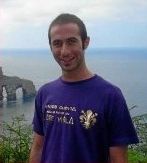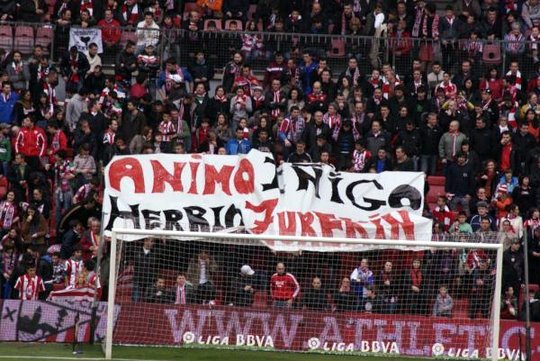But perhaps it should be. Amongst the arguments of "who’s better Messi or Ronaldo", "who will David Villa join", and, "oh by the way who’s round is it", Athletic Club barely get a look in. However in today’s ever declining lack of footballing morals, ethics and loyalty, Athletic Bilbao at least deserve a drunken supportive rant.
Formed by British migrant workers in 1898, Bilbao has become somewhat of a romanticised club. They are team whom are idealised in a modern world where cheap footballing imports and the EU have almost brought the great youth systems of Europe it their knees.
Gone are the days of the Lisbon Lions who won the 1967 European Cup with players who were all born within 30 miles of Glasgow. Look at every Premier League team in England, only an average of 3 English players per team start every weekend. And yet, in a small part of Northern Spain a team has consistently defied the globalization of football and strove to preserve its values and fundamental beliefs in an age where football is slowly falling into an abyss filled with greed, monetization and self-interest.
The sun quietly descends behind the San Mamés Stadium, or "The Cathedral" if you’re a "Los Leones", as it is still sometime before the hustle and bustle of the new La Liga season comes to these shores. When you think of all the great names that have graced this pitch: the prolific Telmo Zarra, José Ángel Iribar and Joseba Etxeberria to name just a few you begin to see the curiosity that surrounds this club. They are all Basque. They all hail from the Basque region of Northern Spain. And what makes the club more intriguing is that since 1912, almost 100 years ago, the Athletic Bilbao team has only consisted on Basque players. Remarkable. Do you think you would ever see Arsene Wenger or Alex Ferguson only playing footballers born in London or Manchester? Or even Barcelona and Real Madrid only playing with fotballers born in Barcelona or Madrid?
This policy of Youth Academy "Cantera" is one that the club, the supporters and the Basque people are immensely proud of. By implementing this policy the club is ensuring the survival and promotion of the Basque game, they choose to nature their own talent rather than buy an import. It is also more than this. It is a stand against centralization. A voice that yells “we are Basque!”. During the 28 year reign of General Franco the Basque people suffered terrible oppression; their unique language, culture, customs, style were all banned, persecuted and oppressed because they didn’t fit in with the ideal of a one-nation Spain. It was conform or suffer the consequences. Support for Bilbao was a vote against Franco. Much in the same way that Barcelona is self-described as ‘more than a club’, Athletic Bilbao are similar, but they take it a step further.
And yet, not everyone looks upon Athletic Bilbao as the ideal football club.. Admittedly these critics mainly come from outside the region but perhaps they do have a point when they say that Cantera is restrictive to Bilbao’s progress. While it has cemented its position in footballing history as a club that is genuinely local (if you overlook the fact that it was created by foreigners), it has also been somewhat left behind when it comes to success.
They haven’t won a domestic trophy since 1984 and since we have entered the 21st century their highest finish has been 5th. Not bad you might say considering they are up against the likes of Real, Barcelona and Valencia who can open their cheque books and sign anyone from any part of the world, but when you consider their success historically in that they have won 8 La Liga titles and sit 3rd behind Real Madrid and Barcelona in terms of league titles won; the policy of Cantera looks outdated and obsolete. A throwback to a distant age when football was idyllic and naïve.
And yet this isn’t the view of the club nor the fans. Their last president, Fernando Garcia Macua, announced that “we’d rather go down than change our habits, I know the supporters feel the same.” They have only a 3 million strong population in which to find their next Telmo Zarra.
If the Arsenal Board decided that the club could only buy players that are part of, or have descended from, the 7.5m people that live in London there would be a revolt. But yet we look upon Bilbao as well, somehow right and honorable. Of course clubs should have a ‘local’ presence, of course they should protect and nurture their own; it’s a sorry state of affairs that most clubs have neither the will nor the courage to do so.

















































